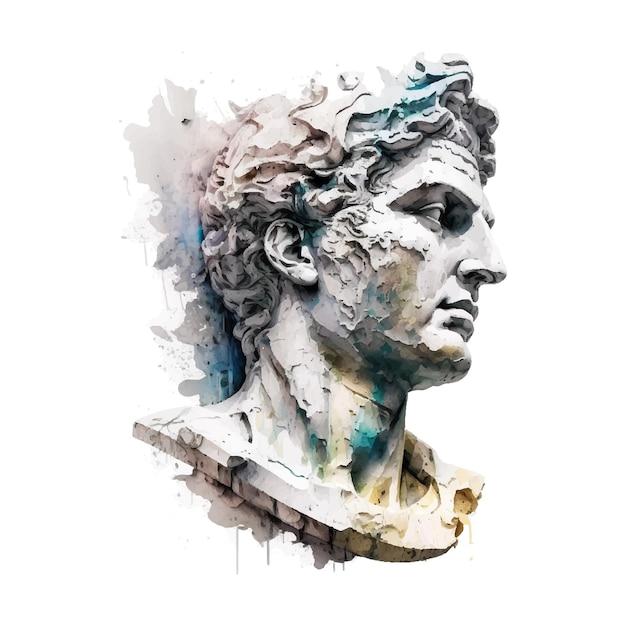Welcome to our blog, where we delve into the captivating world of literature and explore the hidden layers of meaning in great works of art. In this post, we will embark on a journey through the tragic tale of Oedipus the King, written by the renowned Greek playwright Sophocles in the 5th century BCE.
Oedipus the King, also known as Oedipus Rex, is a masterpiece of ancient Greek drama that continues to captivate readers and audiences to this day. With its complex characters, intricate plot, and profound themes, this play has stood the test of time and holds a significant place in the annals of literary history.
In our exploration of this timeless tragedy, we will focus on one particular aspect: the motif. A motif, in the context of literature, refers to a recurring symbol, concept, or theme that serves to enhance the overall meaning and impact of a work. By identifying and analyzing the motifs in Oedipus the King, we can gain deeper insights into the complex web of fate, prophecy, and self-discovery that form the core of the play’s narrative.
So, join us as we unravel the symbolic threads that weave together the tragic tapestry of Oedipus the King and discover the profound significance behind its motifs. Let’s dive in!

What is a motif in Oedipus the King
In the tragic play Oedipus the King, written by the legendary Sophocles, motifs play a significant role in conveying deeper themes and enhancing the overall dramatic effect. These recurring elements provide a thread that weaves the tapestry of the story together, and they add layers of meaning and symbolism to the narrative. So, what exactly is a motif in Oedipus the King, and why does it matter? Let’s delve into this fascinating topic.
The Enigmatic Sphinx
One intriguing motif that surfaces throughout the play is the enigmatic Sphinx. With the head of a human and the body of a lion, this mythical creature is Oedipus’ first triumph on his path to becoming king. The Sphinx presents a riddle to anyone who crosses its path, and only those who solve it successfully can proceed. This motif not only represents the challenges and obstacles that Oedipus encounters but also symbolizes the quest for knowledge and self-discovery. It serves as a metaphorical reminder that sometimes we must grapple with complex puzzles and confront our inner demons to move forward in life.
The Ongoing Theme of Blindness
Another compelling motif in Oedipus the King is the theme of blindness, both literal and metaphorical. The sightless prophet, Tiresias, plays a crucial role in foreshadowing Oedipus’ tragic fate. Despite being physically blind, Tiresias possesses a profound insight into the truth—a stark contrast to the figurative blindness that plagues those who refuse to face reality. This motif serves as a warning against the dangers of willful ignorance and the consequences of avoiding the truth. It prompts us to ask ourselves: Are we truly seeing things as they are, or are we wearing blinders to avoid uncomfortable realities?
The Puppetmaster of Fate
A motif closely intertwined with the narrative of Oedipus the King is the concept of fate. Throughout the play, we witness characters grappling with their predetermined destinies and the futility of trying to escape them. Oedipus, despite his best efforts to avoid his prophesied fate, unknowingly fulfills the very prophecy he seeks to evade. This motif highlights the profound impact fate can have on our lives, reminding us that sometimes our actions are nothing more than the tangled strings of a puppet pulled by unseen forces. It poses the existential question: Can we truly alter our predetermined destinies, or are we merely casualties of an unyielding universe?
The Ominous, Unseen Gods
Lastly, we encounter the motif of the gods in Oedipus the King. The gods in this play are not physically present, but their influence is palpable. They shape the fate of the characters and exert their power from the shadows. This motif underscores the pervasive belief in ancient Greek culture that the gods, though unseen, held immense sway over human lives. It reminds us that even in the face of our own agency, there are unseen forces at work beyond our control. Whether we view the gods as benevolent or malevolent, their role in the play’s events serves as a humbling reminder of our place in the grand cosmic tapestry.
In conclusion, motifs in Oedipus the King enhance the storytelling experience by infusing the play with deeper layers of meaning and symbolism. The Sphinx, blindness, fate, and the gods all contribute to the richness of the narrative, prompting introspection and exploration of timeless themes. So the next time you dive into the tragic world of Oedipus, keep an eye out for these motifs—ponder their significance, and let them transport you to a realm where questions of destiny, knowledge, and the human condition intertwine.

FAQ: Motifs in Oedipus the King
What Is a Metaphor Poem
A metaphor poem is like comparing two things without using “like” or “as.” It’s like a sneaky way of describing something by saying it’s something else. For example, if I say “life is a rollercoaster,” I don’t mean we’re literally strapping into a rollercoaster. I’m just saying life has its ups and downs. Clever, right?
Why Is Oedipus Angry with Tiresias
Oh boy, Oedipus is one angry dude! He gets real steamed at Tiresias because the old prophet has some news Oedipus just doesn’t want to hear. Tiresias tells Oedipus that he’s the one who killed his own dad and married his mom. Yeah, that kind of news would make anyone a little ticked off, wouldn’t it?
What Does Oedipus Mean in Greek
In Greek, “Oedipus” means “swollen foot.” No, seriously, that’s what it means. Now, I don’t know about you, but I’ve got to hand it to Oedipus’s parents for coming up with such a unique name. Maybe they saw his foot and thought, “Wow, that’s one puffy foot right there! Let’s name him Oedipus!”
What Is Sight a Metaphor For in Oedipus
Ah, here we go again with the metaphors. In Oedipus the King, sight is used as a metaphor for knowledge and insight. Oedipus starts off the play thinking he knows everything, but as the story unfolds, he realizes just how blind he truly is. Talk about a sight for sore eyes, huh?
What Is the Purpose of the Poet in Writing the Poem
The purpose of the poet in writing Oedipus the King is quite simple: to entertain and educate the audience. The poet wants to tell a gripping story that keeps us on the edge of our seats while also teaching us a thing or two about life. It’s like when you watch a really good movie that makes you laugh, cry, and ponder the deep questions of the universe all at once. That’s the power of a skilled poet!
What Is a Motif in Oedipus the King
A motif in Oedipus the King is like a recurring theme or idea that pops up throughout the play. It’s like a little puzzle piece that helps us understand the bigger picture. In this tragic tale, one major motif is the idea of fate vs. free will. Oedipus can try to outrun his destiny all he wants, but in the end, fate has a way of catching up with you like a persistent cat chasing a laser pointer.
How Would You Define Personification
Personification is like giving human qualities or characteristics to something that isn’t human. It’s like making an object or an animal seem like it’s a living, breathing person. For example, when we say “the wind howled,” we’re not saying the wind actually has vocal cords and can make sound. We’re just using personification to make our writing more interesting and lively. It’s kind of like giving a little makeover to dull old words.
What Is the Main Theme of the Play Oedipus Rex
The main theme of the play Oedipus Rex is like the big idea or message that the whole story revolves around. In this case, the theme is all about pride and the dangers of thinking you’re all that and a bag of chips. Oedipus starts off super full of himself, but, spoiler alert, he soon realizes that arrogance can lead to some pretty disastrous consequences. It’s a classic lesson in humility, folks!
What Was Oedipus’s Curse
Oedipus’s curse is like the ultimate case of “you’re screwed, buddy.” In a nutshell, he’s cursed to unknowingly kill his own dad and marry his own mom. Yeah, pretty messed up, right? It’s like the universe had a vendetta against poor Oedipus right from the start. Talk about a rough hand to be dealt! No wonder he’s so furious all the time.
Now that you’re armed with some stellar knowledge about the motifs in Oedipus the King, you’ll impress all your friends at the next book club meeting. Go forth, my literary connoisseur, and shine like a metaphorical star!
